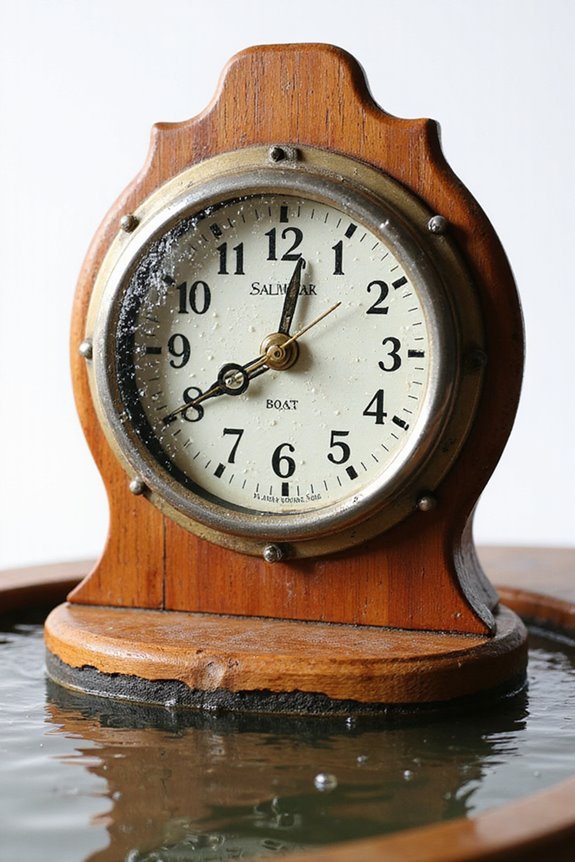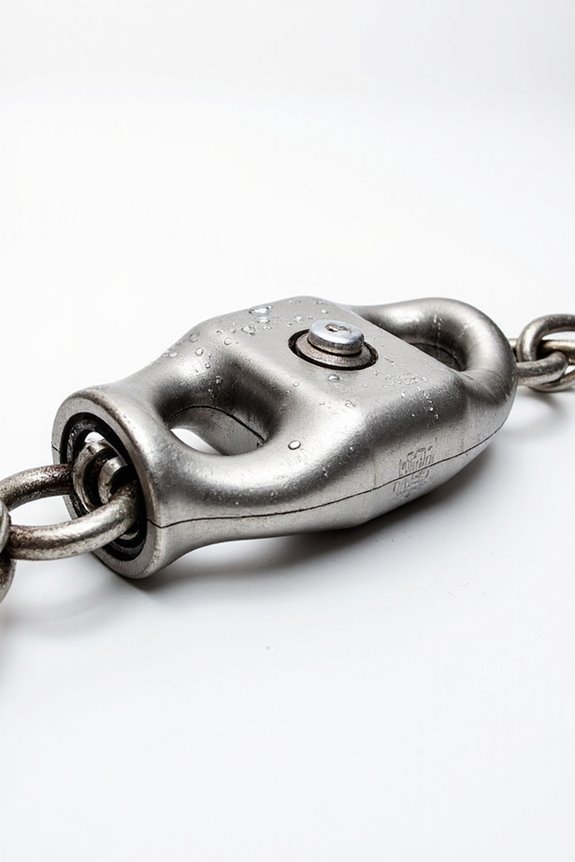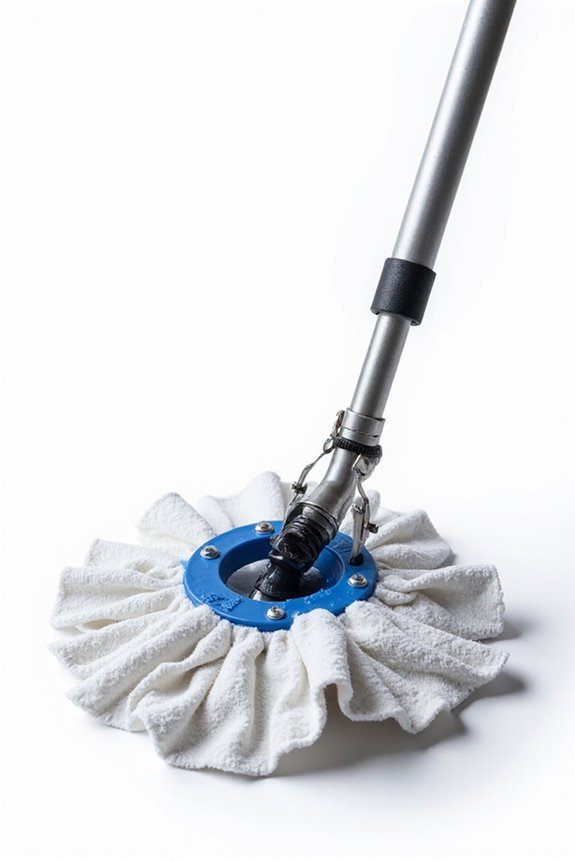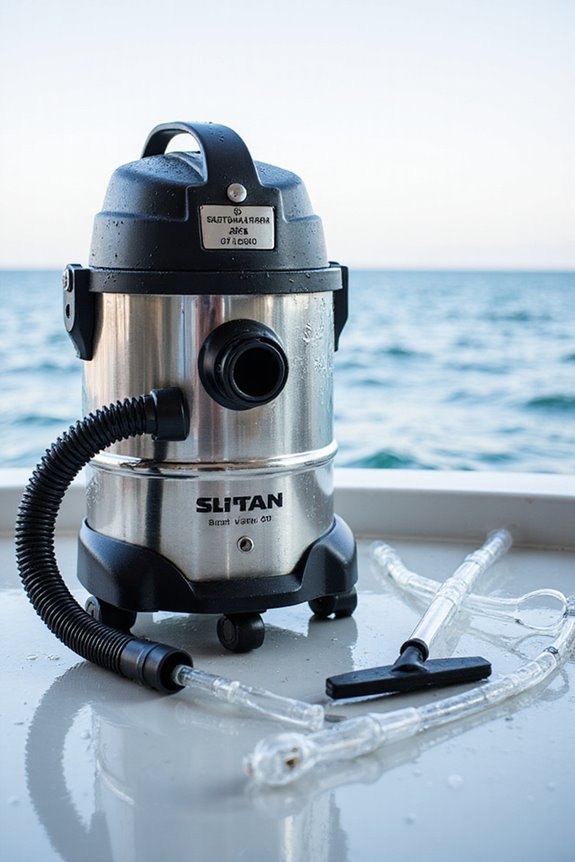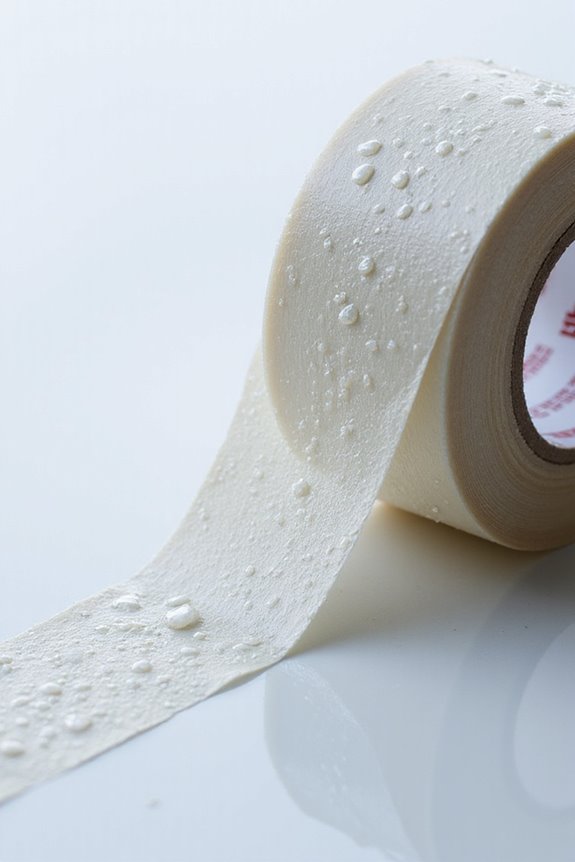We often get caught up in a boat clock’s look and accuracy but forget its real hero: waterproofing. It’s essential, not optional, since salt spray and storms love to mess with standard clocks. Quality boat clocks rely on IP ratings like IP65 or IP67, sealed cases, and corrosion-resistant materials to keep ticking strong even underwater. Think of it as your clock’s raincoat against marine mayhem. Curious how these features boost durability and performance? Stick around for the details.
Key Takeaways
- Waterproof features protect boat clocks from moisture, corrosion, and salt, ensuring accurate timekeeping essential for maritime safety.
- IP ratings, especially IP65 to IP68, quantify a clock’s true water resistance beyond vague “water-resistant” labels.
- Design elements like rubber gaskets, screw-down backs, and sealed lenses significantly enhance water resistance and durability.
- Waterproofing prevents rust, fogging, and mechanical failures caused by exposure to harsh marine environments.
- Selecting clocks with appropriate waterproof ratings and corrosion-resistant materials reduces maintenance and prolongs lifespan.
The Necessity of Waterproofing in Marine Timekeeping
Even if you’re not a seasoned sailor, you’ve probably guessed that timekeeping on the water isn’t as simple as just glancing at your phone. In the harsh marine environment, moisture and salt can wreak havoc on standard clocks, making waterproofing essential. It is understood that for precise navigation—and let’s be honest, safety too—timekeeping precision isn’t negotiable. Waterproof boat clocks protect their delicate inner workings from corrosion and moisture, preventing errors that could throw off your course. Plus, they keep ticking reliably, no matter if waves splash over the deck or humidity skyrockets. Therefore, investing in corrosion-resistant materials not only extends the life of your clock but also ensures it can withstand the rigors of marine conditions. So, when you’re picking a clock for your boat, waterproofing isn’t an extra—it’s a must-have to keep your time—and your trip—on track. Because who wants a soggy, slow clock adding stress at sea?
Understanding Waterproof Ratings for Boat Clocks
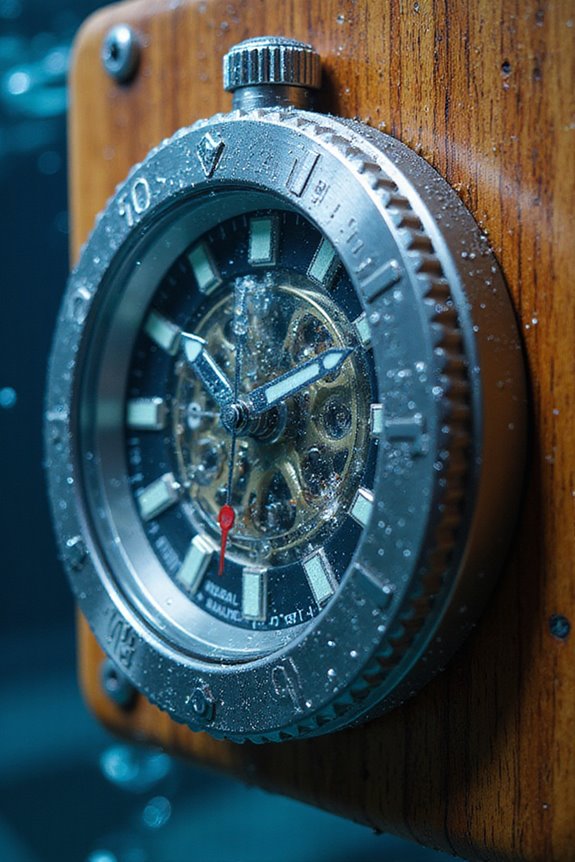
When picking out a boat clock, understanding waterproof ratings isn’t just a nice-to-have—it’s essential. Ever heard of IP ratings? They’re the secret code marine electronics use to tell us how well a device resists dust and water. The first digit shows protection from solids like dust, while the second tackles water, ranging from light splashes to full submersion. For boat clocks, an IP65 rating means it’ll handle most weather and sea spray. But if you’re on the bridge or exposed to heavy waves, look for IP67 or even IP68—these can survive short or long-term underwater dips. Don’t just settle for “water-resistant” claims; check those IP ratings closely, as they’re your best bet for a clock that’ll keep ticking, no matter how wild the waters get.
Key Design Elements That Enhance Water Resistance
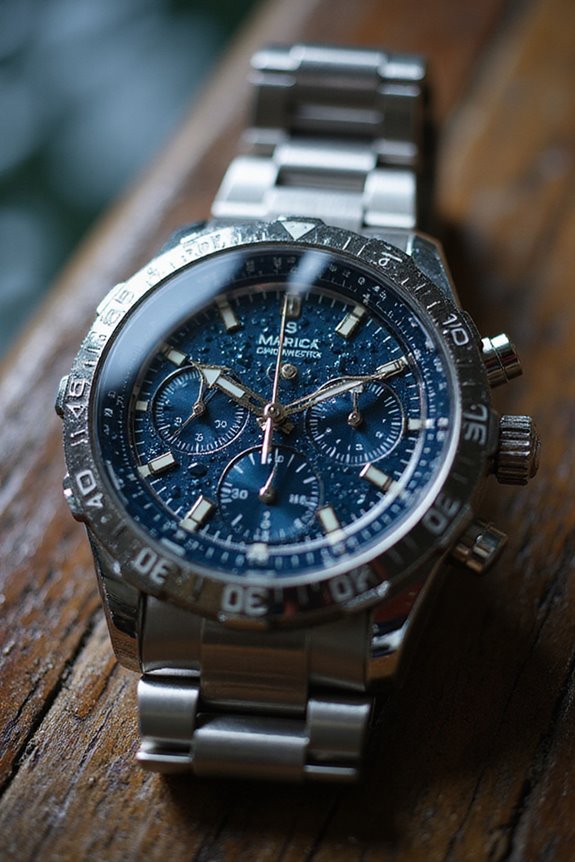
Now that we recognize how waterproof ratings like IP65 and IP68 work, let’s check out what actually makes a boat clock tough enough to keep water at bay. It all starts with clever sealing technologies—think rubber or silicone gaskets snugly fitted at every joint, backed by screw-down case backs that block moisture like a fortress. Ever wonder how the clock’s window resists scratches and salt spray? That’s where lens materials come in, usually tough acrylic or treated plastics with shatter-proof, UV-resistant coatings. These lenses don’t just look good; they’re sealed tight, preventing leaks while staying clear for easy reading. Combined with corrosion-proof casings and smart design choices, these features team up to keep your boat clock ticking reliably, no matter how wild the waves get. Who knew waterproofing could be so technical, yet so essential?
How Waterproofing Improves Clock Durability and Performance
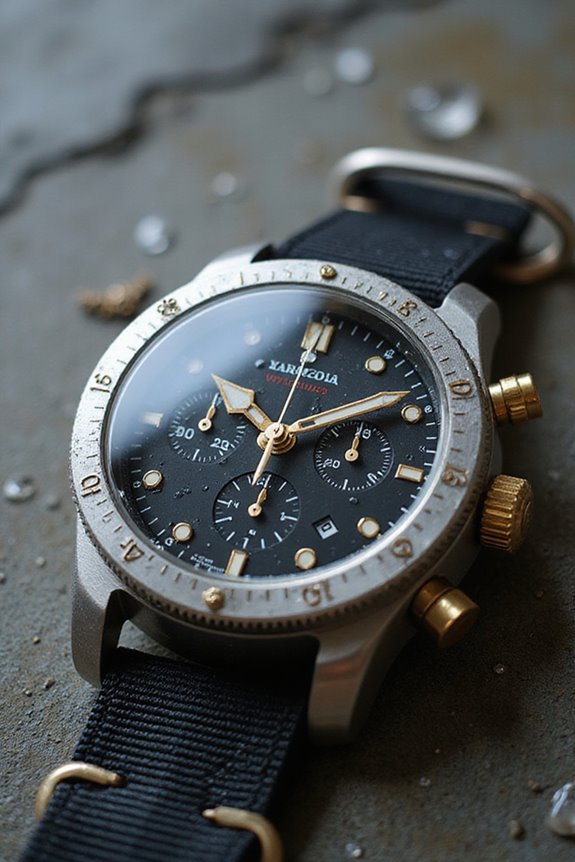
Since we’ve already seen how boat clocks are built tough against water, let’s talk about why that matters beyond just keeping them dry. Waterproofing boosts durability by using corrosion-resistant clock materials like brass, which fend off salty air and sea spray—major villains for any maritime gear. This means fewer worries about rust or gunk messing with your clock’s inner workings. Plus, smart maintenance strategies take advantage of waterproof designs to reduce how often we need to tinker with or clean our clocks. Have you ever dealt with fogged-up dials or timing glitches after a storm? Waterproofing prevents that, keeping your timepiece reliable and readable when you need it most. In short, proper waterproofing prolongs performance and slashes upkeep—pretty handy when you’re all about smooth sailing.
Choosing the Right Waterproof Clock for Your Vessel
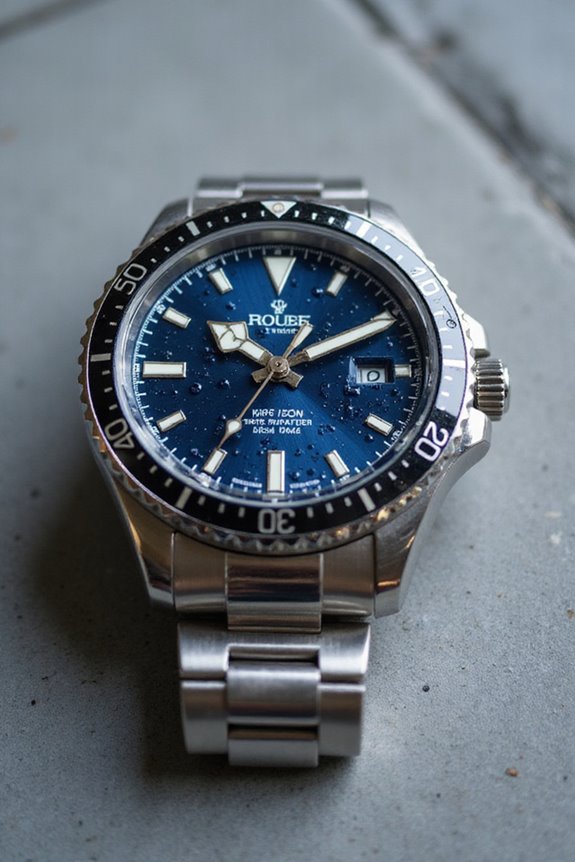
Although picking out a waterproof clock might seem straightforward, there’s more to it than just grabbing the fanciest model off the shelf. We need to take into account the right IP rating—IP65 is usually solid for most boat environments, protecting against dust and water jets, but if your vessel faces flooding, IP67 might be smarter. Don’t forget about the power source; most waterproof clocks need a constant feed since backup batteries aren’t common. Want a hassle-free setup? Follow installation tips like removing fastening rings before insertion and securing the clock from behind. Choosing corrosion-resistant materials also pays off. Finally, balance style and durability; after all, your clock should look good while weathering the waves. Got your toolkit ready? Let’s make sure your vessel’s timepiece ticks perfectly.
Frequently Asked Questions
Can Waterproof Boat Clocks Be Submerged Without Damaging Internal Batteries?
We can’t guarantee submersion safety for waterproof boat clocks since battery protection isn’t foolproof. It’s essential we use specialized casings and maintain our clocks carefully to keep moisture from harming internal batteries and guarantee lasting performance.
Do Waterproof Clocks Require Special Maintenance Compared to Non-Waterproof Models?
We’ve found that waterproof clocks cut maintenance frequency by nearly half compared to non-waterproof ones. Plus, their battery lifespan often lasts longer, making us feel confident joining a community that values durable, hassle-free timepieces on the water.
Are There Specific Brands Known for Superior Waterproof Boat Clocks?
We’ve found that brand comparisons and consumer reviews highlight Weems & Plath, Chelsea Clock, and Hermle as leaders in waterproof boat clocks. We’re confident you’ll join many satisfied owners appreciating their superior durability and design.
How Do Waterproof Clocks Handle Extreme Temperature Fluctuations on Boats?
We recognize how essential temperature resistance is for clocks on boats facing extreme conditions. That’s why waterproof clocks use materials like marine-grade steel and quartz movement to stay precise and durable through fluctuating temperatures, keeping us all reliable.
Can Waterproof Features Affect the Accuracy of Mechanical Boat Clocks?
We might wonder if waterproof materials compromise mechanical accuracy, but actually, proper waterproofing protects delicate components from moisture and corrosion. Together, these features help guarantee our clocks stay precise, keeping us confidently on time at sea.

